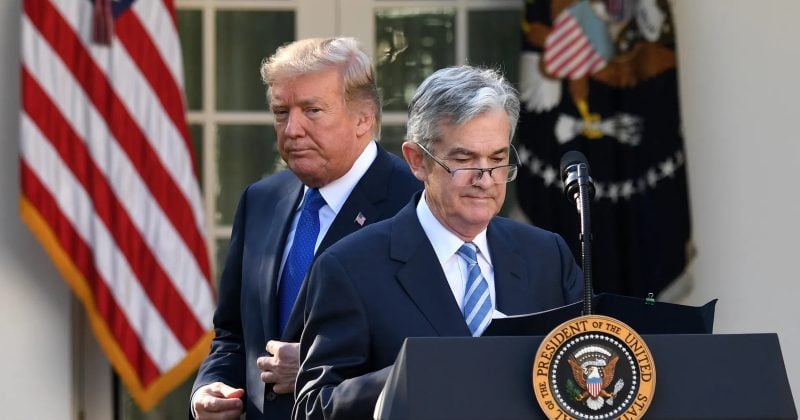Key Takeaways
- Tariffs are likely to lead to higher inflation and slower economic growth.
- The Federal Reserve is monitoring tariff effects but remains cautious about monetary policy changes.
Share this article
Fed Chair Jerome Powell said today that Trump’s newly announced tariffs are higher than expected and these measures are likely to lead to higher inflation and slower economic growth. He reiterated that the central bank is not rushing into any policy moves and will wait for more clarity.
“While uncertainty remains elevated, it is now becoming clear that the tariff increases will be significantly larger than expected. The same is likely to be true of the economic effects, which will include higher inflation and slower growth,” Powell said in his prepared remarks at the Society for Advancing Business Editing and Writing’s annual conference.
Touching on the state of the American economy, Powell noted that the economy remains “in a good place” with solid growth, a balanced labor market, and inflation running above the Fed’s 2% target. However, he warned that all new federal tariff hikes could complicate the path forward for monetary policy.
“Higher tariffs will be working their way through our economy and are likely to raise inflation in coming quarters,” Powell stated.
The Trump administration announced on Wednesday a sweeping new tariff policy, imposing a minimum 10% tariff on all foreign imports, with higher levies on goods from countries running large trade surpluses with the US. Economists warn that the new trade regime could push effective tariffs well above 25%, stoking inflation while weighing on growth.
The Fed chair stated that the central bank’s response to these developments would depend on several factors, including the specifics of the tariffs, their duration, and potential retaliation from trading partners.
“We are well positioned to wait for greater clarity before considering any adjustments to our policy stance,” he said. “It is too soon to say what will be the appropriate path for monetary policy.”
Friday’s remarks come after recently released data showed inflation is still running hot. Core PCE prices — the Fed’s preferred gauge of inflation — rose 2.8% year-over-year in February.
Powell acknowledged that progress toward the Fed’s 2% inflation target has slowed, and that the effects of the tariff hikes could worsen inflation in the coming quarters.
Still, Powell emphasized that inflation expectations remain “well anchored,” and said the Fed will work to ensure that a temporary shock from tariffs does not turn into a lasting inflation problem.
Share this article

